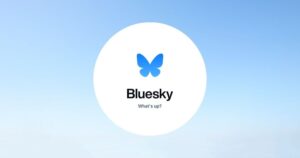If you’re tuned into what’s happening on social media, you may have heard about a new platform that’s grabbing headlines and attention: Bluesky. The latest new social site to pick up steam, Bluesky is a micro-blogging platform designed to give users more control and flexibility. Unlike traditional platforms, it lets users personalize what they see, keep ownership of their data (including content and followers), and move their account to other apps if they choose. So, what do government social media teams need to know about Bluesky and how should they be considering using it (if at all)? Here’s what to know.

What is Bluesky?
Bluesky is a new social media platform that aims to give users more control over their online experience. It allows people to personalize what they see, keep ownership of their data, and connect in a way that feels more authentic and less controlled by a single company. For government offices and agencies, it could become a way to engage with citizens and community members in a more flexible and transparent environment.
Is Bluesky associated with X (Twitter)?
Bluesky is considered a competitor to X (Twitter), though it originated as a project within Twitter in 2019 and was originally initiated by then-CEO Jack Dorsey to explore decentralized social media solutions.
What unique features does Bluesky have?
In addition to all the usual features you’d expect, Bluesky offers customizable feeds, data ownership, and the ability to move your account between platforms. Government entities may benefit from its focus on transparency and the flexibility to tailor content for specific audiences.
How do Bluesky’s customizable algorithms work?
On Bluesky, users can choose or create algorithms that decide what appears in their feed. This means government offices and agencies can ensure their content is more visible to the people they want to reach, like local community members. Notably, users also have more control over what they don’t want to see.
What is Decentralized Social Media?
Decentralized social media is a new approach to online platforms where no single company or organization has total control over the platform. Instead of relying on centralized servers owned by a specific company (like Meta or Twitter), decentralized platforms are built on a network of independent servers. These servers can be run by individuals, communities, or organizations, allowing users more freedom, privacy, and control. Specifically, each server can have its own rules for content moderation, algorithms, and community guidelines. This makes it easier to create spaces tailored to specific values or needs.
How is Bluesky thinking about user privacy?
Bluesky prioritizes user privacy by giving individuals ownership of their data and minimizing how much personal information is collected. This focus on privacy is making it an attractive option for some users, who are increasingly concerned about how their personal data is being stored and shared.
Should government offices and agencies be on Bluesky?
Bluesky is still new, and governments should keep an eye on it as it grows. It offers opportunities to reach communities in innovative ways, but its current audience is limited. One way to get started is by creating a personal profile, which allows you to explore the new platform and its features without fully diving in and committing to a presence for your government office.
Does Social Assurance for Government support Bluesky?
Not currently. As with any new or emerging platform, our in-house development team here at Social Assurance will keep a close eye on Bluesky and its short- and long-term viability to determine whether it makes sense to add it. We’ll keep you posted.
At Social Assurance for Government, we’re committed to helping government offices and agencies large and small leverage social media more effectively and effectively. Interested in learning more about how our technology is helping cities, schools, parks and rec, and more? Get in touch below.

